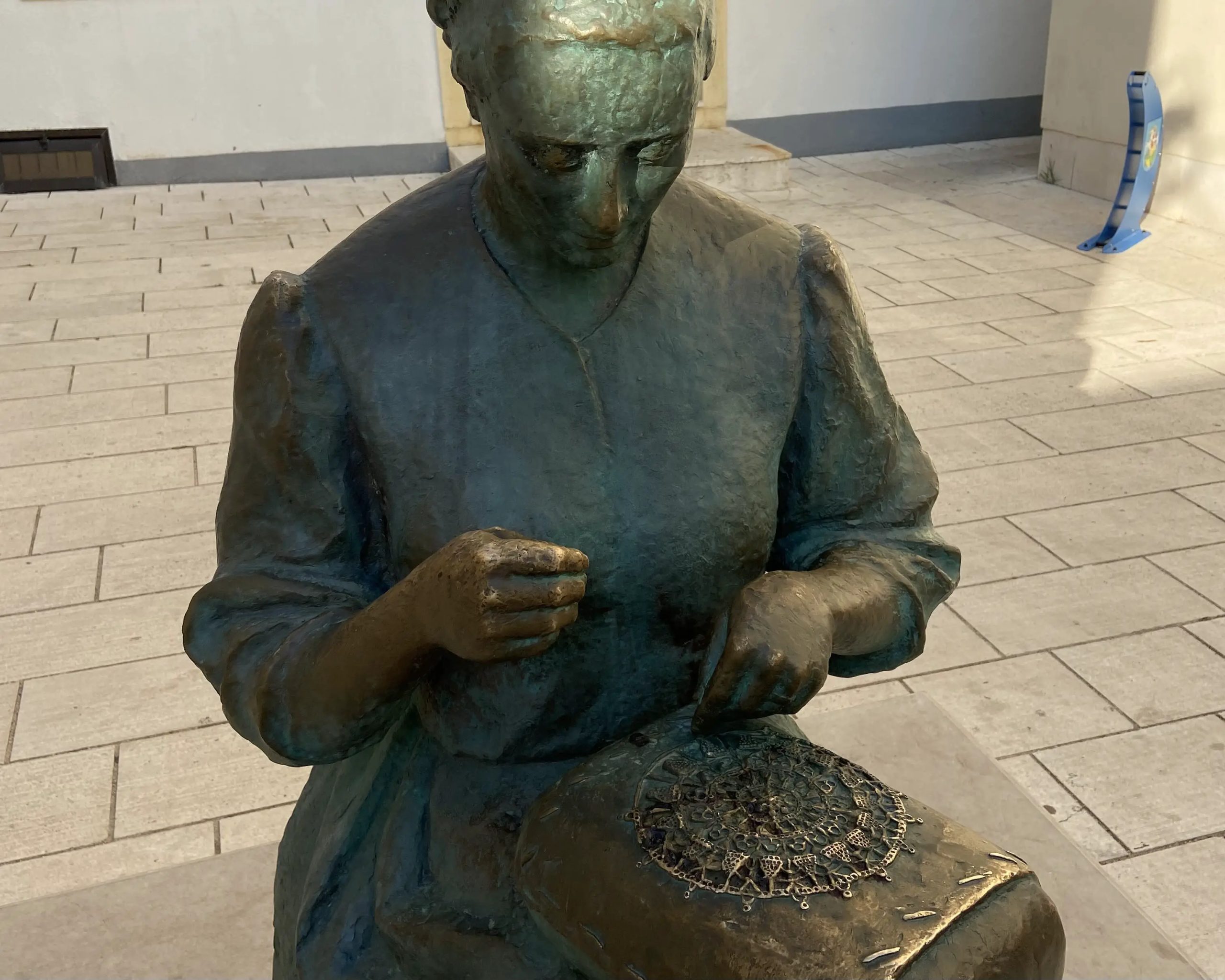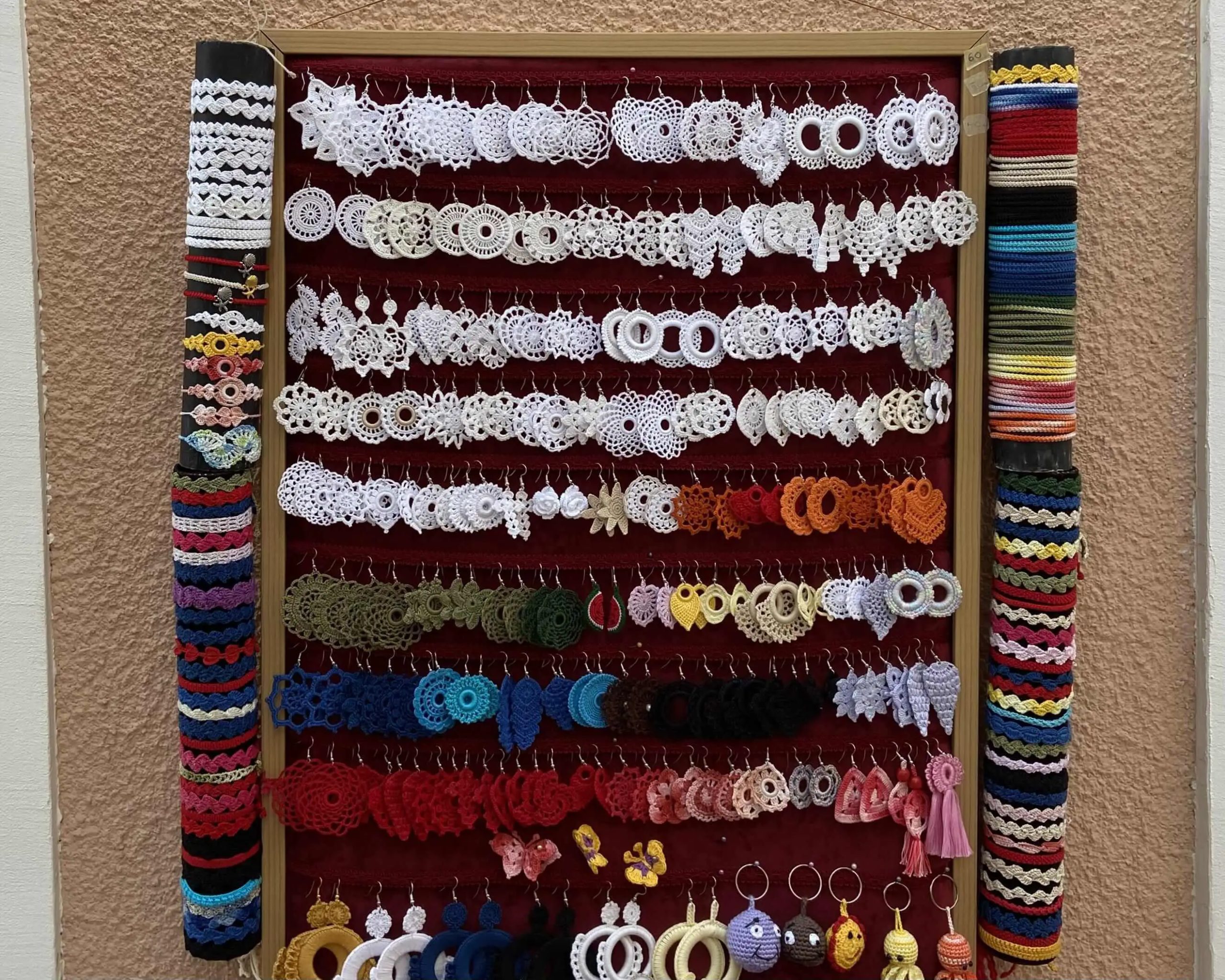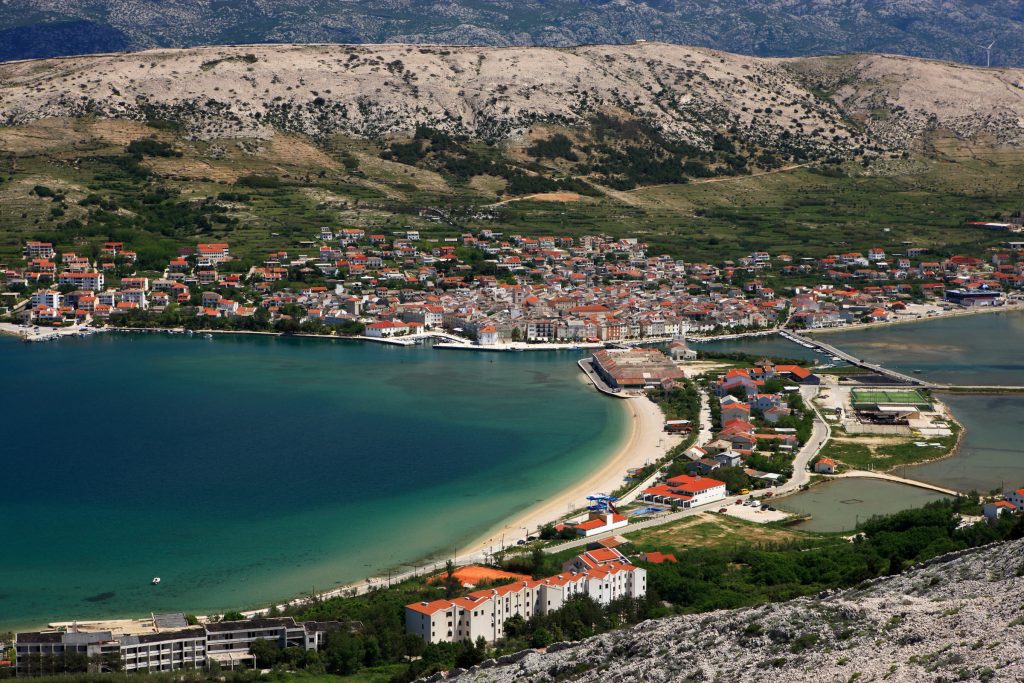Lacemaking, a cherished tradition in Croatia known as ‘teg’, has been recorded throughout the Mediterranean in the mid-fifteenth century – when small rural communities left a cultural heritage to be passed down generations. The renowned folk-art form has seen patience and skill from women unlike anything else, as their hard-working hands are well acquainted with the delicate lace we now see on the streets of Pag.

Photo: Ailin Khassen
Such beauty requiring an ordinary mending needle and thread, as well as a backing – which is usually a hard stuffed pillow – is created by intangible designs; known to have been handed down from generation to generation. However, it is very likely to find each lace maker adds her own personal touch to her special lacework.
The lace, having been seen as a design on clerical vestments and national costumes (specifically the blouses and headgear, called ‘pokravica’), has now become known as a stand-alone item. Most commonly, it is utilised as a decorative item, such as an adornment on furniture; an embellishment framed and mounted on walls; a detail sewn onto articles of apparel, and hems of curtains and tablecloths.

Photo: Romulic & Stojcic
This painstaking work became renowned and diversified due to the admiration it got many years ago. In 1937, Pag’s lacework has received the gold plaque for high-quality handcraft at the World Exhibition in Paris – aiding in the demand it has seen over the years. Moreover, it is known that Empress Maria Theresa kept a lacemaker from Pag at the court in Vienna. To add, in 2009, these tiny works of art have been registered in the list of intangible cultural heritage by UNESCO – along with the lace in the island of Hvar and the town of Lepoglava!
Therefore, this precious lacemaking tradition is widespread and cherished by many in Croatia. To protect this handiwork, the Town of Pag, with the State Intellectual Property Office, has decided to implement the act of signing a license agreement when wanting to commercialise or use the lace of Pag for souvenirs, and clothing and other items. “With this act, we pay tribute to Pag lace and choose who will use it and in what way,” the director of the Pag Tourist Board, Vesna Karavanić, told HRT.

Photo: Ailin Khassen
With the word of beauty and preciseness of the lace of Pag being carried far, it is no surprise that tourists end up purchasing a piece of handiwork in one of the gift shops in the town of Pag. Additionally, it is a true pleasure to visit the Benedictine nuns of the Monastery of Santa Margherita – who keep the lace craft tradition in Pag as strong as it is. A collection of over a hundred exhibits, which have been collected and preserved for over 150 years, can be found in the Monastery as well. So, do not miss the opportunity to stop in the town of Pag to encounter the renowned lace that is as delicate as a snowflake, but durable enough to withstand laundering!
For more on travel in Croatia, follow TCN’s dedicated page.









